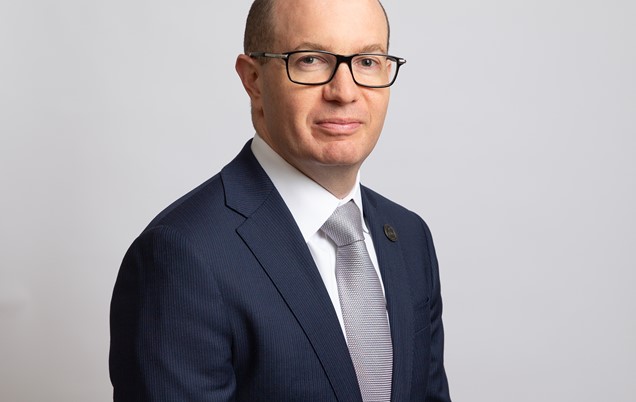Advice hub. Stress & anxiety
There’s no doubt about it a career in hospitality can be stressful. Stress is a reaction to feeling under pressure. In the workplace, it often comes about when we feel overwhelmed by too many responsibilities or tasks.
A small amount of stress can be a helpful thing it gives us motivation to finish tasks. But if you end up feeling too much stress for too long, it can affect both your physical and mental health.
When stress mounts, it can turn into anxiety, which can have a debilitating impact on both long-term physical and emotional wellbeing. Anxiety is a state of feeling tense or afraid either about things that will happen or things that could happen.

Once again, feeling a certain amount of anxiety is common. It is nature’s early warning system and essential to our survival. Some measure of anxiety is necessary for life to continue. This is ‘good’ anxiety sometimes we need an extra push to get through something that is proving to be a challenge. Here it is motivational. The ‘fizzy’ nerves during a busy service, can help provide focus, clarity of thought and an extra burst of energy.
But ‘bad’ or chronic anxiety states, where we can become paralysed by fear and worry, are not helpful, and actively get in the way of recovery. Too much anxiety can be harmful.
Signs of stress can include:
- Difficulty sleeping
- Feeling irritated with family, friends or co-workers
- Drinking more than usual
- Struggling with work deadlines
- Feeling isolated and lonely
- Physical symptoms such as: panic attacks, headaches, chest pains, indigestion, dizziness, nausea, sweating, breathing problems
The Health and Safety Executive (HSE) has estimated that people suffering from stress, depression or anxiety took an average of 21.6 days off in 2019/20. Mental health charity Mind recommends some ways to manage it, they include:
- Identify your triggers – try to prepare for stress by recognising what sets it off
- Organise your time – Make a list of your tasks and approach them in order of urgency
- Be clear about your limits – While it isn’t always possible to say no to things, let people know if you don’t have the capacity to fulfil their demands.
- Try to take a short break – it may seem counter-intuitive to take a break when you are stressed but if you can allow yourself one, this can help how you feel.
- Develop interests and hobbies – Outside of work, try to make time for what you enjoy to take you away from stress.
- Get enough sleep
- Stay physically active
- Eat a balanced diet
- Spend time in nature
- Build a support network – having friends and family, or finding support at work to talk through why you feel stressed can make a big difference
Anxiety can have a debilitating impact on both long-term physical and emotional wellbeing. At the extreme end of the spectrum lie anxiety disorders, which almost always require professional help.
But the good news is that there is an awful lot that we can do to take responsibility for our levels of stress and anxiety. We can’t always do something about the demands that are placed on us, but we can always do something about how we respond.
Self-diagnosing anxiety
Charity Anxiety UK has devised a simple anxiety self-diagnosis test. If you can answer yes to these questions then you may be experiencing anxiety:
- Do you feel that you have been nervous most days over the past six months?
- Do you have problems falling asleep?
- Do you have bad dreams or wake up worrying?
- Do you feel that your body is very tense or uptight?
- Do you often feel that you want to shout or feel frustrated?
Other physical symptoms of anxiety can include: faster breathing, a fast heartbeat, sweating or hot flushes, restlessness, nausea, grinding your teeth, having panic attacks.
What causes anxiety?
Different people can feel anxiety in relation to all sorts of different things – there isn’t a defined set of causes. However, somethings are more likely to bring about feelings of anxiety. They include:
- Past experiences such as abuse, bereavement, bullying, neglect, racism, or social exclusion.
- Problems in the present day such as a long periods of stress, uncertainty, work pressure, unemployment, financial issues, loneliness, bereavement, abuse or bullying.
- Living with serious health problems.
- Living with other mental health problems such as depression.
- Drugs and alcohol.
- Medication for physical or psychiatric problems.
Managing anxiety
If you are struggling with anxiety and feel you need help, then you can contact your GP who can help you gain access to a range of treatments. But there are also things you can do to help yourself:
- Talk to someone – if you are an employee from a company that subscribes to our EAP call our EAP Assistance Line, for everyone else please call the HA helpline.
- Write down your worries – It can help to make a note of what is worrying you and keep them in a specific place to help you stop turning those worries over in your mind. Alternatively, dedicate a specific time in the day to think about what is worrying you.
- Breathing exercises – The NHS offers some specific breathing exercises to help you cope with stress.
- Look after yourself – Try to eat well, get some sleep, and consider regular exercise if you can.
- Peer support – Organisations like Anxiety UK, Anxiety Care UK, No Panic, and No More Panic can help put you in touch with groups of people who support each other through similar experiences.
Hospitality Action Helpline.
0808 802 0282 (24/7)
EAP Assistance Line.
UK: 0808 802 2111 (24/7)
Irl: 1800 911 121 (24/7)
Support Platform.





